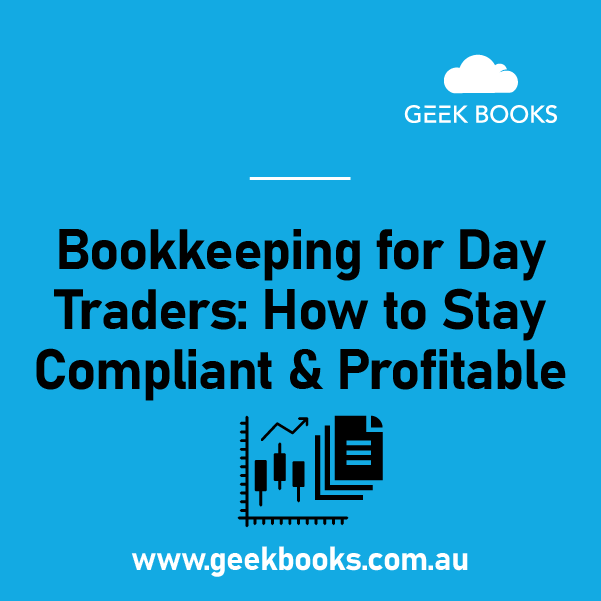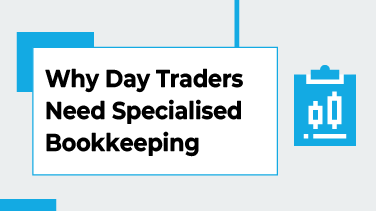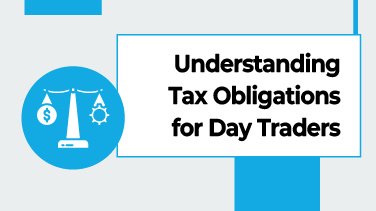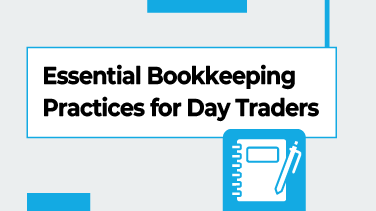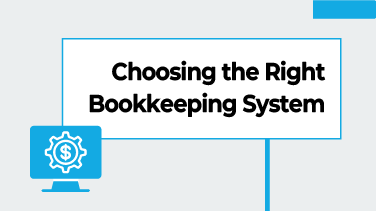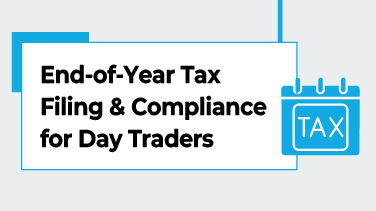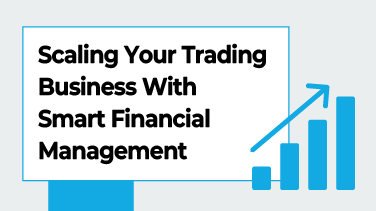Trading is thrilling—the fast moves, the charts, the adrenaline.
But if your books are a mess, that winning streak can quickly turn into a compliance nightmare.
Day trading isn’t just about spotting breakouts; it’s also about mastering your numbers.
With thousands of transactions a year, proper record-keeping is critical.
The ATO expects detailed records, clear profit and loss tracking, and full compliance with tax rules.
This guide outlines how to streamline your bookkeeping, stay on top of tax obligations, choose the right tools, and keep everything ATO-compliant.
Let’s get started.
Why Day Traders Need Specialised Bookkeeping
If you’re trading full-time, traditional bookkeeping just doesn’t cut it.
Standard systems aren’t built to handle the volume, speed, and complexity of high-frequency trades.
You need a setup that tracks profits, losses, fees, and capital gains in real-time.
Poor bookkeeping isn’t just inconvenient—it’s risky.
ATO audits are triggered by incorrect or incomplete reporting of business income.
For traders, that can lead to:
- Missed deductions
- Surprise tax bills
- Costly penalties
Bottom line: If you’re serious about day trading, you need an online bookkeeping system built for high-volume trading and ATO compliance—because tax mistakes can cost you more than a bad trade.
Understanding Tax Obligations for Day Traders
Investor vs. Business Trader: What’s the Difference?
The Australian Taxation Office (ATO) classifies traders as either investors or business traders, which determines how their income is taxed and what deductions they can claim.
Investors generally focus on long-term growth, holding assets like shares or property.
Business traders, however, engage in frequent, active trading to generate short-term profits.
Accurate classification helps avoid tax errors and penalties, and consulting a tax professional can ensure compliance while optimising your financial strategy.
How Are Day Trading Profits Taxed?
Day trading profits are taxed based on how long you hold the asset and whether you’re classified as an investor or a business trader.
Since most day traders buy and sell within the same day, their profits are usually considered short-term and taxed as ordinary income at their marginal tax rate.
If you hold an asset for over 12 months, you may qualify for the 50% capital gains tax (CGT) discount, but this only applies if you’re classified as an investor.
Business traders, on the other hand, pay income tax on all profits, without CGT discounts.
The average tax rate for Australian day traders is 32.5% if classified as a business.
To stay compliant and avoid costly surprises, it’s essential to report income accurately and claim all eligible deductions.
Common tax mistakes made by day traders include:
- Misreporting income – Not declaring all profits or incorrectly categorising trading as investment income.
- Missing deductions – Overlooking expenses like trading platforms, computers, or professional services.
- Poor record-keeping – Failing to track trades and costs can trigger ATO audits.
- Misclassifying trading activity – Treating trading as a hobby instead of a business can result in denied deductions and back taxes.
Tax implications can also vary by trading style:
- Forex trading – Generally taxed as business income with no CGT discount. Precise tracking of currency conversions and trading costs is critical.
- Stock trading – High-frequency traders are taxed as a business; occasional traders may be treated as investors and qualify for CGT rules.
- Crypto trading – Taxed either as business or investment income depending on activity. CGT discounts may apply for holdings over 12 months.
Understanding how your profits are taxed—and keeping detailed, ATO-compliant records—can help you minimise tax liabilities and trade with peace of mind.
Essential Bookkeeping Practices for Day Traders
Automating Trade Tracking and Data Entry
Real-time transaction tracking is non-negotiable when you’re making dozens or hundreds of trades per day.
For high-frequency traders, manual tracking is a recipe for burnout—and mistakes.
The right online bookkeeping software can streamline everything. Platforms like Xero, QuickBooks, and MYOB offer strong integrations and reporting tools.
For traders, the real game-changer is using trade import tools that sync with platforms like MetaTrader, ThinkorSwim, and Interactive Brokers.
These tools automatically pull in trade data, saving hours of data entry and reducing the chance of costly errors.
Keeping ATO-Compliant Records
The ATO expects traders to maintain clear, detailed records of every trade.
That includes:
- Trade logs
- Brokerage statements
- Tax summaries
- Any correspondence related to trading income.
Records must be kept for at least five years.
Incomplete or messy records are a major red flag for the ATO and can trigger audits—even if your reporting was unintentional.
Automation helps, but traders should regularly review records for accuracy and completeness.
Tracking and Claiming Tax-Deductible Expenses
Business traders can claim a variety of deductions that directly reduce their taxable income.
Key deductible expenses include:
- Trading software subscriptions (like TradingView or Bloomberg Terminal)
- Brokerage fees
- Platform commissions
- A percentage of home office costs—such as internet, phone bills, and electricity.
Staying organised and consistent not only keeps you compliant—it directly boosts your bottom line.
Choosing the Right Bookkeeping System
DIY vs. Hiring a Bookkeeper: Which is Better?
When it comes to managing your books, traders typically face two options: go DIY or bring in a pro.
DIY bookkeeping can be a smart choice for part-time traders or anyone with a low volume of trades.
With the right tools, it’s cost-effective and relatively easy to stay on top of things.
But once you’re trading full-time and dealing with hundreds—or thousands—of transactions, bookkeeping quickly becomes a full-time job in itself.
That’s where a professional bookkeeper comes in—ideally, one who understands the unique demands of trading businesses.
They can save you hours of admin, help you avoid costly mistakes, and make sure you’re claiming every deduction you’re entitled to.
Most importantly, they’ll keep your records clean and ATO-compliant.
For high-frequency traders, the benefits—time saved, fewer errors, maximised deductions, and peace of mind—often outweigh the cost.
Top Bookkeeping Software for Day Traders
For Australian traders, the right software makes all the difference.
Xero stands out for its clean interface and automation features, QuickBooks offers strong reporting and integration options, while MYOB is known for payroll and GST tracking.
Whichever you choose, look for features that cater to active trading like:
- Automated trade imports
- Real-time tax estimates
- Easy Profit & Loss tracking
Most of these platforms can link directly to your trading platforms and bank accounts.
For example, Xero can be paired with trade import tools that sync with Interactive Brokers or MetaTrader, pulling in trades automatically.
You can also connect your business bank account to auto-import expenses, making reconciliation a breeze.
End-of-Year Tax Filing & Compliance for Day Traders
Preparing Your Tax Return With Confidence
When tax time hits, having a clean, ATO-compliant Profit & Loss (P&L) statement is key.
It should clearly show your trading income, deductible expenses, and net gains or losses.
Proper reporting can mean the difference between a smooth tax season and a stressful audit.
Here are some of the most common mistakes traders make:
- Misclassifying themselves as an investor when they’re actually operating as a business.
- Failing to report all trades or income (especially with crypto or offshore brokers).
- Missing deductible expenses like trading software, internet, or home office costs.
- Not keeping accurate, up-to-date records to support their return.
Avoiding these slip-ups starts with solid bookkeeping. A trading-savvy tax professional can help you lodge correctly, reduce liabilities, and keep the ATO happy.
Tax Planning Strategies to Reduce Your Liability
Traders with the right strategy can hold onto more of their hard-earned profits.
Some of the most effective tax-saving tactics include:
- Offsetting gains with capital losses – If you had losing trades, you can use those to offset your gains and reduce your taxable income.
- Maximising deductions – Traders who properly track expenses (software, internet, commissions, office costs) can reduce their tax.
- Contributing to superannuation – Personal contributions (within caps) are tax-deductible and help grow your retirement savings.
- Choosing the right business structure – Operating as a company or trust may offer better tax outcomes than trading as a sole trader, depending on your profit level and future plans.
The right structure and strategy don’t just keep you compliant—they also give you more control over how much tax you pay and when you pay it.
Scaling Your Trading Business With Smart Financial Management
Managing Cash Flow for Long-Term Success
As a day trader, you must plan for market volatility, trading platform fees, or unexpected expenses that could catch you off guard.
Here’s how to stay ahead of the game:
- Budget for taxes – Set aside a portion of your profits for tax obligations, so you’re never caught off guard.
- Reinvest profits – Keep the momentum going by reinvesting a portion of your profits into expanding your trading strategies or upgrading your tools.
- Prepare for unexpected expenses – Always have a buffer for trading platform fees, equipment, or other costs that could arise.
Using financial forecasting tools can also help you manage profitability and risk.
With cash flow projections and trading-specific calculators, you can anticipate high-profit periods and downturns.
Expanding Beyond Day Trading
While day trading is exciting, diversifying your investments is key to long-term financial stability.
Here are some options to consider:
- Long-term investments – Stocks, bonds, or property can provide stability and mitigate the risks of daily trading.
- Options trading – Adds flexibility and hedging opportunities to your portfolio.
- Hedge funds & algorithmic trading – Explore these strategies for diversified risk and higher potential rewards.
Working with a financial adviser can also help you scale your business.
They’ll guide you through building a diversified portfolio, crafting tax strategies, and ensuring your trading business is structured for growth.
This partnership allows you to not only survive in the market but thrive in the long run.
Trading With Confidence: Knowing Your Numbers Inside and Out
To succeed in trading, you need more than instincts and market knowledge—you need organised, compliant, and strategic bookkeeping.
Tracking trades, expenses, and profits gives you financial clarity to make smarter moves and minimise risks.
With the right bookkeeping system, you can focus on what matters—profitable trades.
Streamlining your finances means less admin and more time for strategy.
It’s a win for your business and peace of mind.
Don’t let bookkeeping hold you back. If you’re trading full-time, let GeekBooks take the stress out of your finances.
Book a consultation today, and ensure your numbers are in top shape, so you can keep your eyes on the prize!
FAQ
Which Accounting Software Is Mostly Used by Traders?
The most popular accounting software for traders includes Xero, QuickBooks, and MYOB.
These platforms offer automated trade imports, real-time profit & loss tracking, and seamless integrations with trading platforms like MetaTrader and Interactive Brokers.
They’re ideal for keeping your records clean and ATO-compliant.
What Type of Accounts Do Day Traders Use?
Day traders typically use business trading accounts for tax purposes, especially if they’re classified as a business trader by the ATO.
These accounts allow for clearer record-keeping and better tracking of deductions.
Do Day Traders Have to Report Every Transaction?
Yes, day traders must report every transaction made throughout the year.
The ATO requires detailed records of each trade, including purchase and sale dates, amounts, and any associated costs.
Automated bookkeeping systems can help ensure no transaction is missed, making the process more efficient and accurate.


